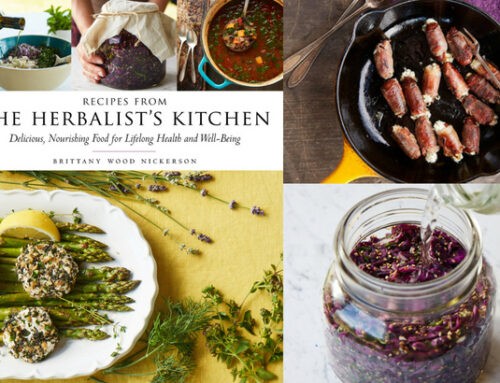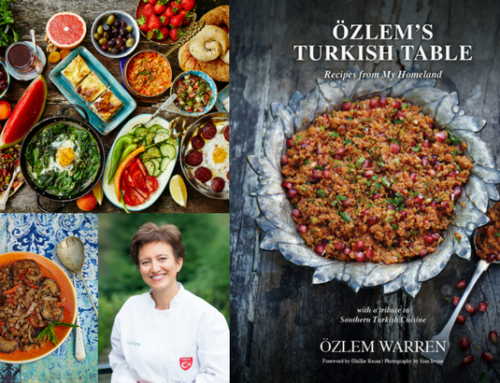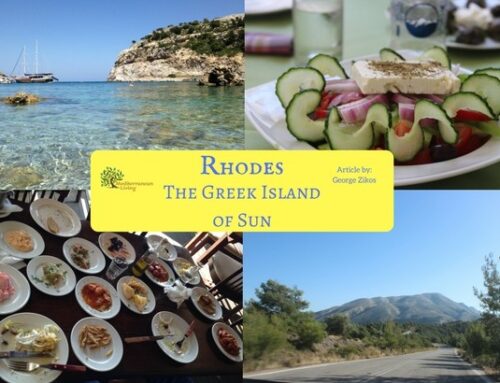Cookbook Review: The Holiday Kosher Baker
By Sarah Hodge
Updated December 3, 2014
I have been looking for the perfect book to recapture my Polish grandmother’s excellent baking, and Paula Shoyer’s “The Holiday Kosher Baker” was the perfect resource to end my search.
Beginning with the gorgeous cover photo with embossed silver pomegranate edges, this is an educational, well-rounded and beautiful cookbook. The six main sections, which represent the major Jewish holidays chronologically (Rosh Hashanah and Yom Kippur, Sukkot, Chanukah, Purim, Passover and Shavuot), are color-coded, making it easy to quickly flip to a particular section. Shoyer includes a handy kosher baking encyclopedia, which covers basic baking equipment and tips for cookies, cakes, tarts, mousses and pastries. She also offers friendly advice on plating desserts, timing and planning holidays, and baking for Jewish lifecycle events.
I instantly fell in love with several of the High Holiday desserts, including the elegant apple and honey challah rolls, whole-wheat chocolate babka, and the babka bites. I found the dough for the whole heat chocolate babka easy to work with; you use a combination of white whole wheat and all-purpose flour.
The babka bites are great for impromptu guests or events; the recipe makes about 48 and they freeze well. Because these are individually portioned in mini-muffin cups, they’re less messy than handing out slices of babka. Other recipes I tried and will add into my regular rotation are: the almond and olive oil cake (parve), pignons (parve), and the cheese babka (dairy, obviously) that reminded me of my grandmother’s babkas and cheese coffeecakes.
The Passover section represents the bulk of the holiday recipes, with over 45 Passover recipes representing everything from cookies, to candies, cupcakes, and tarts. The chocolate and pistachio tart and lemon tart with basil nut crust are my new favorites; great for any time of year! Non-gebrokts recipes are clearly labeled, and a sidebar on difficult-to-find ingredients for Passover helps to simplify planning.
In addition to favorites like babka, rugelach, (apple) latkes, and hamantaschen, you’ll find a strong French influence throughout the book. Shoyer graduated from the Ritz Escoffier pastry school in Paris. Among the French-influenced offerings are brioche challah (dairy), tart tatin, madeleines, chestnut mousse, kouigh amann, pear and almond pithivier cake, cannelés, éclairs, and a variety of macarons. With the exception of the Shavuot recipes, the vast majority of recipes are parve (many rely on margarine; I’ve had good luck with Earth Balance Buttery Baking Sticks). I also love the fact that the book addresses special diets. In addition to being kosher, there are vegan, nut-free, gluten-free, and low-sugar recipes; truly something for everyone in your family and community.
Recipes are given in volume and metric measurements. Along the way, you’ll find helpful sidebars that explain techniques and tips for success. With the exception of some of the French recipes (and the several that call for passion fruit), most of the recipes call for commonplace equipment and ingredients that should be readily available in your area. At least one calls for Voilà! Hallah Traditional Egg Bread Mix, now available in some major supermarkets. Recipes are also labeled by their level of difficulty (easy, moderate, or multiple step), and there are several that would be perfect for pint-sized helpers. Several of the more difficult recipes come with helpful step-by-step photos, and nearly every recipe features a color photo of the final baked good.
“The Holiday Kosher Baker” is a gorgeous cookbook that I plan to use year-round; Shoyer is a fantastic ambassador for expanding kosher (particularly Passover) desserts to include mousse, fresh fruit, and French-inspired dairy-free desserts, proving that “Passover desserts can be both flavorful and visually stunning.”
Here is a link to Paula Shoyer’s website, where you’ll find recipes, a store where you can buy her cookbooks, a class schedule and more!












Bill Bradley, R.D. says:
Bill Bradley, R.D. says:
Bill Bradley, R.D. says: